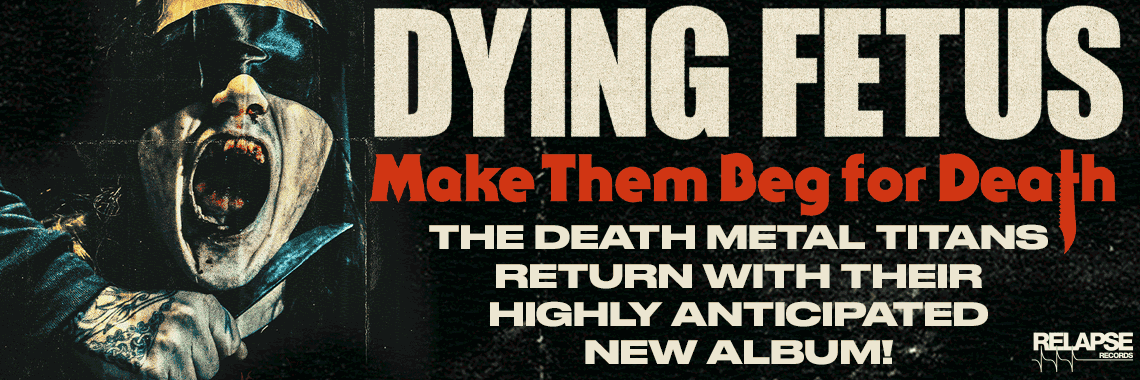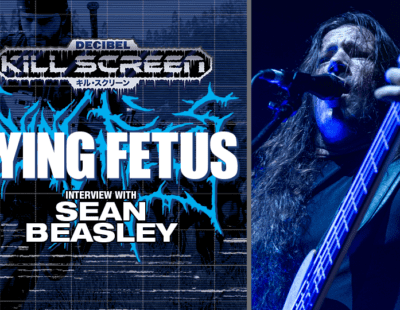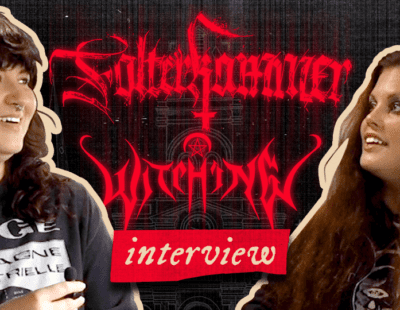
Two years after a damn-near universally acclaimed inaugural event in Olympia, Washington, the beast that is Migration Fest claws its way back to the surface in Pittsburgh, Pennsylvania July 27-29 for its sophomore slaughter featuring an completely (and appropriately) over the top lineup that includes Khemmis, Derkéta, Couch Slut, Pelican, Krallice, The Ominous Circle, Tomb Mold, Zombi, Spirit Adrift, Mutilation Rites, Thou, and many more. (Tickets, while they last, here.)
Decibel recently got the inside scoop on the return from 20 Buck Spin founder Dave Adelson—who organizes and produces Migration with Gilead Media‘s Adam Bartlett—covering everything from the change in locale to why fest promotion is like the fight game…
So when I interviewed you a couple years ago about the first Migration Fest and asked “Why Olympia?” you said, “It’s in Olympia because I live here and that was the easiest thing for me. Unlike seemingly every modern person I don’t actually care that much about traveling.” This year it’s in Pittsburgh. What happened? Did you finally get bitten by the travel bug after all?
Well, not exactly. I relocated to Pittsburgh last summer. So once again it’s all about me and my convenience. [Laughs.] Mr. Smalls, the venue where the Fest will take place, is just a couple miles from where I now live and work. But I love Pittsburgh, this is a great city, unbeknownst to many people. They’ll get to see that if they come for Migration Fest. Adam’s been very considerate in letting me be local for these first two Fests.
What did you learn from putting on the inaugural fest and how did you apply it to this one?
Aside from some local DIY type shows that was the first ‘concert event’ I’d ever been involved with on the production / booking side. So almost everything was a learning experience for me in the regard. And that was a large part of the motivation to do it; learning something new. The best way to learn something is throw yourself into it—you will make mistakes, but mistakes aren’t failure. In the fight game they say the proper mentality is you either win or you learn. It’s the same for everything. I think this year will be easier now that we’ve done it once before.
Probably related, but were there any surprises the first time around, good or bad, that you wanted to double down on or avoid this time out?
Nothing too terrible, actually. I think it’d be good if we can remember to do little things that we spaced on until things were actually happening, that were a hassle to do in the moment. Something as simple as posting a printed schedule backstage and around the venue. Obvious things that somehow you just forget, and then have to really hustle to get done.
You guys slayed the line-up again, obviously. Can you talk to me a little bit about how it came together? Were there must-have targets you locked onto early? Any happy unexpected gets?
For me—and bands from my label, specifically—I try to focus on bringing the ones that either recently released an album, or will be releasing one in the months before and after the Fest. Geographic location plays a role in those decisions, too. A big part of the reason for Migration Fest is to showcase our label’s bands specifically which is why we don’t accept submissions or requests to play. It’s not that kind of Fest. We do mix in a few bands not on our labels as well that we choose. I’m particularly glad both Zombi and Derketa agreed to play since I’m a fan of both bands and they give us a direct musical connection to Pittsburgh.
From a personal perspective, are there any anticipated highlights for you?
I’m always excited to see the bands. I guess personally it’s rewarding that we’re able to bring The Ominous Circle over for their first US show. I was also super sick when Tomb Mold came through Pittsburgh in November and had to bail on their show here, so it’ll be cool to make up for that.
Do you think having this as a biennial rather than annual fest allows you the breathing room necessary to execute this in such an epic, top-shelf manner? Or does it come down to the number of hours in the day?
I’d say both. As I mentioned, a primary intention is a showcase for label bands. Doing it every year might end up with too many repeat bands. Every two years gives more space to have new artists we’ve added to our rosters as well as older favorites who are coming back with new material. And yeah, the amount of time we spend working on our labels individually is already harrowing, and adding Fest prep on top of it – well, you see Adam has no hair anymore.
Why did Mr. Smalls seem like a fitting canvas for this insanity to you?
Mr. Smalls is an awesome venue. I’ve been there a few times now and I can say it’s a perfect location for what we’re doing, with some benefits that we didn’t have last time in Olympia, like air conditioning. It was an obvious place to go because one of the people who helps run the venue, Jorge Orsovay, is an old friend of mine going back like 18 years. Having a connection like that at the venue has been crucial. Jorge is one of the best guys I’ve met in ‘the biz.’
Did the excitement for both fests out of the gate take you by surprise at all? Does this seem like a long-term proposition to you?
The support is awesome and I’m very grateful for it. I think apart from the lineup, people come for the people. The first Fest had a great spirit to it; a lot of the ridiculousness found at other events was noticeably absent from ours and people found that refreshing. I believe a lot of people who went to the first Fest will return because of that, despite the cross-country migration. As long as that remains the case and we don’t get overwhelmed with the work I can see us doing it many more times.







